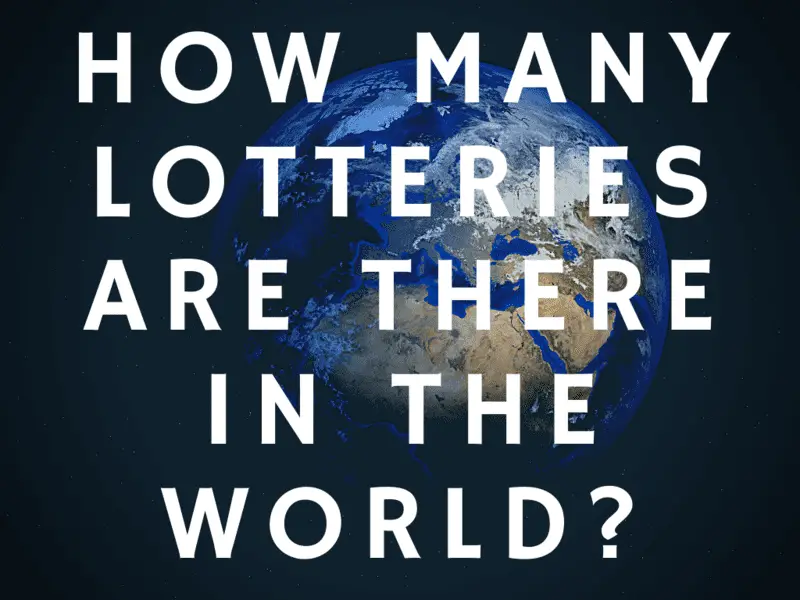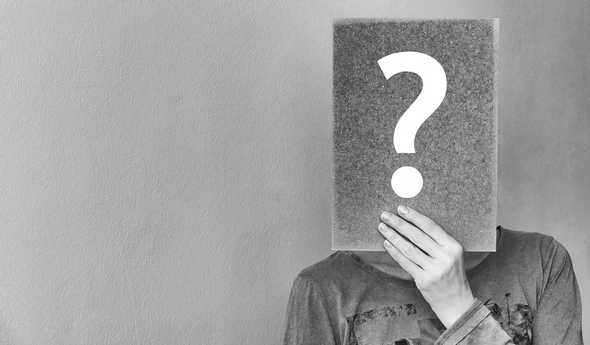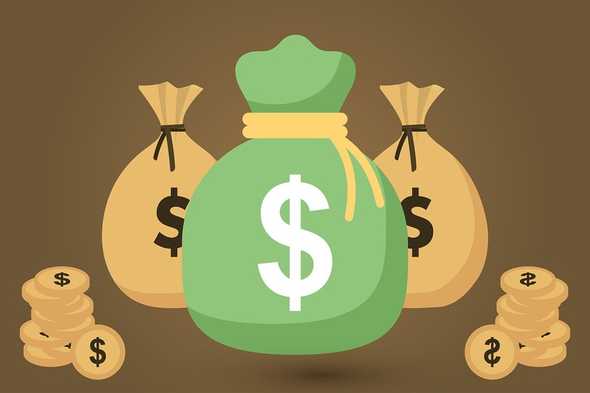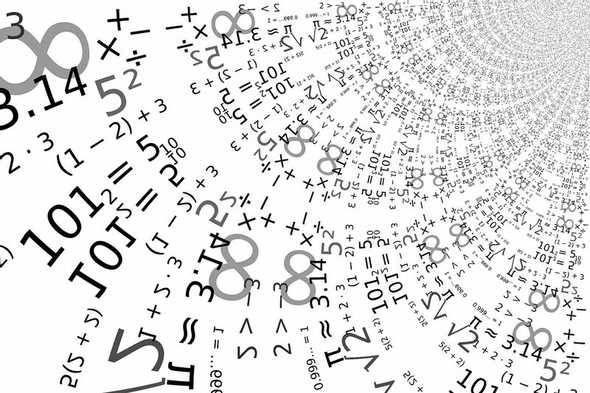How Many Lotteries Are There in the World?
The lottery is a well-known and notoriously popular way to make money fast. Each day, thousands of players enter tickets, hoping to win a prize that will make them rich, and this infectious hope impacts millions of people around the world.
There are approximately 180 lotteries in the world. The United States has the most, but many other countries offer lotteries for their own citizens who hope to get rich. Usually, lotteries are state or country-wide, and Europe has its own lottery participated in by several of its countries.
If you want to learn more about lotteries across the world, the best and biggest lotteries to enter, and which countries have the most lotteries, keep reading.
How Did the Lottery Spread?
The first lottery to distribute prize money was held in Bruges in 1466, or modern Belgium, as a way to help the poor. From Europe, the concept of lotteries expanded and reached people in other countries through trade and colonization.
During colonization, the concept of lotteries spread to the Americas, as lotteries were important in the financing of America’s original 13 colonies, such as in 1612, when lotteries raised 29,000 pounds for the Virginia Company. Lotteries became a common way to distribute wealth and even gained political acclaim as a way to finance political agendas.
After scandals involving bribery in Louisiana’s state lottery, many states outlawed lotteries in the 1870s. Most state lotteries were gone until 1964 when New Hampshire established its own state lottery, and most states followed their example by re-establishing lotteries by 1965.
The lottery’s importance in America’s establishment may explain why it has spread and gained such extensive popularity. While the lottery spread slowly to other countries, the United States had an established ‘state-lottery’ system, which encouraged each state to adopt its own lottery, giving the United States an astonishing number of lotteries.
As the popularity of the internet surged, so did the ease of playing the lottery. Online gambling grew in popularity, and an online lottery was quick to follow. During this surge in online gambling in the 1980s, income generated from the state lottery grew enormously. Now, most lotteries have online options, and online lotteries are popular in Europe and across the world.
Overall, the lottery has become a common and well-known aspect of modern culture. As gambling addiction has become more prevalent, lottery criticism has increased, but countries have attempted to moderate this criticism by giving portions of lottery wins to preventing gambling addiction.
Lotteries have also come into criticism because many see them as perpetuating unrealistic ideas. Some claim that lottery advertising should not be allowed, because they encourage people to spend their money while fooling them into believing their chances of winning big are greater than they actually are. Despite these claims, most countries allow lotteries to advertise and trust the public to educate themselves on the chances of winning.
Over time, lotteries have evolved. Rather than the original sweepstakes form of lotteries, players now have several options when they enter a lottery. Allowing players to choose their numbers increased the lottery’s popularity by giving players a sense of autonomy, even if their odds of winning did not change. Now, this type of lottery is the most commonly played.
Internationally, many lotteries offer bonuses for “lucky number” drawings and jokers. Instant tickets and daily numbers have also become popular. Lottery evolution has created a space for all types of players looking to win a quick fortune. Now, the lottery is popular throughout the world, with players on almost every continent.
Who Has Lotteries?
Clearly, with 180 lotteries around the world, many countries have embraced the concept of lotteries as a safe way of gambling with widespread benefits. When a person wins the lottery, the government gets a portion of the proceeds through taxes, and local economies are stimulated by ticket purchases and cuts of the winnings when a winning ticket is from their store.
While 180 lotteries is a large amount, it’s important to remember that many of that number comes from the United States. No country comes near in number to the United States’ 46 lotteries. Many countries with lotteries have only one lottery, and many of these belong to the World Lottery Association.
The World Lottery Association was formed in 1999 by combining the International Association of State Lotteries and the International Association of Toto and Lotto Organizations. It aims to collect and spread knowledge about lotteries and create ethical standards for the lottery. Overall, state lotteries and gaming organizations from over 80 countries participate. They list 144 member organizations- so, 144 lotteries.
However, not all lotteries are part of the World Lottery Association. In total, there are about 180 lotteries throughout the world. These lotteries are not evenly distributed- the amount of lotteries in each country and even continent varies widely and depends on countries’ culture, laws, and traditions.
Canada and The United States
Although many forms of gambling are illegal in the United States, most states still have some sort of prize lottery. In fact, the United States has the most lotteries of any country, and they even have two national lotteries- Mega Millions and Powerball. Lotteries are the most widespread form of gambling in the United States, and most US adults report playing the lottery at some point. However, a few states have still failed to create or allow a lottery.
There are currently 6 US States without a lottery. These states are Alabama, Utah, Alaska, Mississippi, Nevada, and Hawaii. States choose not to have lotteries for various reasons. For example, Alabama chooses not to have a lottery for religious reasons. Nevada, home to Las Vegas’s casino culture, doesn’t want to provide any competition with Vegas casinos. Similarly, Mississippi casinos have feared competition, but the state plans to begin its own lottery soon.
Canada does not share the United States’ enthusiasm for the lottery, but still has a few games of its own.
For many years, playing the lottery was illegal, until, in 1967, a “voluntary tax” was introduced. This tax involved citizens paying 2 dollars to be entered into a sweepstake with the chance to win $100,000. Canadian officials claimed this was not a lottery because players were paid in gold bars rather than money, but changed the law in 1969 to allow lotteries and protect their actions.
In total, Canada has three lotteries that can be viewed using the website of Lottery Canada, which keeps their lotteries centralized. This number does not include the local bonus lotteries that can provide bonus wins.
Africa
In Africa, there are 14 lottery games spread over ten countries. Although the lottery is less popular in Africa than in North America, there are four African countries with multiple lotteries. Algeria, Kenya, and South Sudan have two and Nigeria has 3.
South America
South America boasts about 26 lotteries. Most South American Countries have at least one lottery, but there are several with more. For example, Argentina, Barbados, and Brazil have three lotteries each while Colombia and Costa Rica have 4. This demonstrates that while other countries may not be as enthusiastic about lotteries as the United States, lotteries are still prevalent in most countries.
Asia
Another area in which the lottery is quite popular is Asia. Citizens see participation in local lotteries as conveying belonging and supporting the community. Furthermore, playing the lottery is viewed as a way for good fortune to manifest in your life, so buying tickets is buying an opportunity for this good fortune to enter.
Many lotteries were once private in Asia- for example, the lottery in India used to be run by a private company. However, these lotteries were banned in favor of state lotteries in 1967, as governments believed the only way to justify a lottery was to ensure that many people could reap its benefits.
Across Asia, there are about 29 lotteries. Most countries, such as Japan, Lebanon, and Laos, have only one lottery. China and Mongolia have two, and South Korea leads most other countries with four lotteries. However, the Asian country that dominates the rest in the number of lotteries is Malaysia, with 7.
Europe
Many European countries have national lotteries, and lotteries in Europe have been popular since the first lottery was created. In fact, Europe is responsible for spreading and expanding the lottery in much of the world.
Most European countries offer at least one lottery to their citizens. However, Estonia is the only European country to have more than four lotteries. In fact, Bulgaria, Lichtenstein, Lithuania, and Poland are the only countries with 4, so most countries have 2 or 3.
Furthermore, many Europeans have the option to enter Euromillions, which is played across 9 European countries- Austria, Belgium, France, Ireland, Luxembourg, Portugal, Spain, Switzerland, and the UK. Therefore, European citizens can choose to enter lotteries at home or opt for bigger sweepstakes in the international lottery.
Biggest Lotteries
While almost all lotteries reach significant payouts at some point, a few reach astonishing levels of wealth. Usually, the longer a lottery goes without a winner, the more it accumulates.
Therefore, lotteries with lower chances of winning that are frequently missed offer a larger payout than lotteries that are easier to win. Historically, a few lotteries across the world have paid winners prizes of over $100 million.
El Gordo Lottery
Spain’s El Gordo lottery is huge, and in 2014, made the largest lottery payout ever. Around Christmas Time, they paid out 2.4 billion dollars over thousands of lucky winners.
SuperEnalotto
Like Spain, Italy has a very large lottery called SuperEnalotto. In 2010, 70 winners shared a pool of 170 million pounds. This lottery has no limit and accumulates over time if there are no wins. To play, six numbers are chosen from a pool of 90 balls, and draws are held each Thursday and Saturday.
During each draw, an additional number is drawn after the standard six, and players have the option to increase their winnings if they can guess this number, called the “Jolly” number. Guessing this number provides a bonus payout, enabling players to become even wealthier than they were initially. Apart from its main jackpot, SuperEnalotto also offers a side game that advertises smaller payouts with higher chances of winning.
Euromillions
Euromillions is Europe’s lottery that covers all of Europe- anyone from a European country can enter. Because of its extensive size, the payout is large, and this lottery has made Europeans millions since it was created in 2004. For example, the Millionaire Raffle draw made 100 lucky European millionaires in one night. In 2012, one British couple won 190 million pounds in the draw!
Oz Lotto
Australia’s Oz Lotto Jackpot has also accumulated to large numbers. In 2012, the Oz Lotto Jackpot hit $111 million paid out to 4 winners. Originally, the lottery was $100 million, but this number soared as more hopeful players entered.
This lottery ended up benefitting dozens of people, as the winners included a syndicate of 80 members hoping to improve their chances of winning. Syndicates involve many players joining together to buy several tickets and improve their chances of winning, with the promise that if they win, they will share the prize. Clearly, in the example of the Oz Lotto Jackpot, this plan was successful!
Mega Millions
In the United States, the Mega Millions lottery is the largest of the dozens of lottery options. In 2012, the prize pool of $656 million was split between 3 winners, giving $218 million to each winner. Individual states’ lotteries can also become very powerful- in 2013, the Florida Powerball paid out over $370 million to one person!
Powerball
Furthermore, the US Powerball is also responsible for paying one of the largest lottery wins of all time. They paid a 1.5 billion dollar jackpot to 3 lucky winners.
This United States national Powerball lottery also tends to climb to high amounts. For example, in 2016, the Powerball lottery was $288 million. However, the odds are stacked- the chance of winning this jackpot was about 1 in 293 million. When it comes to entering a big-winning lottery, the amount of numbers you must guess determines your odds- the more numbers you have to guess, the lower the odds and the Powerball’s odds are not great.
Best Lotteries
When entering a lottery, your chances of winning are incredibly small. State lotteries have the worst odds of any form of gambling, usually far worse than one in a million. Their widespread appeal comes from the fact that despite low chances, common people can become instantly rich for only a few dollars. When you hear about lotteries that offer millions, it may be tempting to enter quickly without considering your odds.
However, to maximize your chances of winning, you should consider factors like lottery price and odds before entering. Some lotteries offer relatively cheap tickets for high payouts.
Remember, your odds of winning are not affected by the number of tickets sold- if you guess the correct numbers, you will win regardless of how many people enter! Ticket sales do impact the jackpot prize because a percentage of ticket sales usually go into the jackpot.
That said, there are a few lotteries with better chances of winning than others, both in the jackpot odds and the odds of winning any lottery prize at all.
Large Lotteries With Good Odds
One way to determine which lottery to enter is to compare them. For example, if you are looking for a lottery with large earnings, you may compare the odds of winning with the price of the ticket. Take America’s Powerball and Mega Millions lotteries. Both have winnings in the multi-millions with low odds of winning- a single entry in Powerball yields a 0.0000000034% chance of winning while Mega Millions has a 0.0000000039% chance of winning.
So, how should you choose between lotteries with these odds?
Well, a Powerball ticket is $2 while a Mega Millions ticket is only $1. Therefore, when choosing between lotteries with similar chances and payouts, you can look at the ticket price to determine your best option. You could buy two Mega Millions tickets for the price of one Powerball ticket, effectively doubling your chances of winning.
El Gordo
The Jackpot Lottery with the best odds is El Gordo in Spain. One ticket gives you a 1 in 31,625,100 chance of winning, which is pretty decent for a large jackpot. This is a Christmas lottery that pays out billions of dollars to thousands of winners and aims to allow as many people as possible to win. The jackpot is usually 400,000 euros, or about $450,000.
Sweden’s National Lottery
The Swedish Lottery is known for having good chances of winning at a reasonable price. A ticket is only $1.50, and for $3, you can enter the Lotto 2 draw, a second draw that immediately follows the first. For an additional dollar, you can enter the “dream win,” a bonus game.
The Swedish lottery involves choosing 6 out of 45 numbers, providing a 1:6,724,520 chance of winning the jackpot. While this number seems daunting, it is actually pretty good for a draw with bi-weekly drawings and a large jackpot. Also, they offer smaller prizes, and the overall chance of winning any prize is 1:55, giving pretty decent odds. Adding the bonus draws further improves these odds.
Austria’s National Lottery
Austria’s lottery is also a 6 out of 45 number game and is another game with low cost and decent odds. This lottery costs $2 for a basic game and $4 for the basic plus the joker. Although the jackpot chances are worse than Sweden’s at 1:8,145,060, it has better odds for breaking even or winning a prize. This lottery has eight prize divisions, and the lowest division or “bonus ball” involves guessing a ball number that will refund your ticket price.
With Austria’s lottery, you have a 1 in 16 chance of breaking even when you play and a 1 in 12 chance of winning a prize, making it one of the easiest lotteries to win. This trait definitely does not guarantee you will win big, but you stand a reasonable chance of breaking even or enjoying small and exciting prizes.
Chispazo
Mexico’s Chispazo Lottery holds drawings twice a day and offers some of the best jackpot odds in the world. When you play this lottery, you have a 1 in 98,280 of winning the jackpot. The first winner of this lottery won a prize of MXN$224,063.68.
Euromillions
Finally, if you are looking for a lottery with high chances of winning a non-jackpot prize, consider entering Euromillions. This Europe-wide lottery has a jackpot that reaches hundreds of millions of dollars. However, while your chances of winning the jackpot are extremely low (the jackpot often has drawings without winners), your odds of winning any prize are quite good. When you enter this lottery, you have about a 1 in 13 chance of winning any prize.
While the worse-than one in a million odds may seem impossible to many, remember those are just the odds of winning a jackpot. Euromillions is not the only lottery with low jackpot odds but decent odds of winning any prize. The United States’ Powerball lottery has about a 1 in 25 chance of winning some sort of money. Although this is only about half as good as Euromillions’ odds, it may provide some hope that you can successfully win something.
Smaller Lotteries
If you are looking for a lottery with higher odds, you face a tradeoff because better odds usually involve smaller payoffs. However, you are much more likely to win if you play smaller lotteries, and even a small win can drastically impact your life.
Poland’s Mini Lotto
Poland’s Mini Lotto offers a decent payout for a low price with good odds! This lottery only costs $0.50 to play, so you can enter multiple times per week, and they host drawings every day. To play, you’ll pick five numbers between 1 and 42, Jackpots reach up to $100,000, and you have a 1: 850,668 chance of winning, which is far better than other jackpots.
Japan’s Mini Lotto
Another small lottery whose jackpot offers odds that are better than one in a million is Japan’s Mini Lotto. They boast odds of about 1 in 169,911, which is hundreds of times better than most jackpots. These odds come from the game’s minimal guessing requirements- you will pick five numbers out of 31 possibilities, which is much better than many lotteries that force players to choose six numbers out of over 40 options.
If you play Japan’s Mini Lotto, you can still win big despite the better odds. This lottery’s jackpot reaches over 14 million JPY or about $130,000 in prizes for the grand prize. Even better, they have a third division prize that allows you to still win something if you do not guess all the numbers. If you guess four out of the five winning numbers, you will win over 11,900 JPY or about 110 US dollars.
South Africa’s Daily Lotto
South Africa’s Daily Lotto has a 1 in 850, 668 chance of winning, but is unique because it guarantees a winner each day. They offer daily jackpots of thousands of dollars and promise that these jackpots will be claimed by someone. Generally, the daily jackpot is about R300,000, or over $17,000. This amount pales in comparison to other jackpots but is pretty decent when daily winners mean you can frequently try your luck.
State Lotteries
If you live in the United States, experts say you should stick to in-state lotteries rather than national lotteries with bigger prizes, because the national lotteries are usually very hard to win. You should play a pick three or pick 4 number lottery because fewer numbers make it easier to win. These prizes are generally smaller, but you have decent odds of winning at least a few hundred dollars in a few draws.
Massachusetts offers the best lottery payouts, with the average player making about $0.80 for every dollar spent playing the lottery. Delaware and West Virginia have the worst lottery payouts, and most players make less than $0.20 for each dollar spent.
For a better lottery guarantee, you can try scratch-off tickets. Although these tickets usually only yield a few dollars, you have at least a 60% chance of making back the money you spent on the card, making them a fun option for less serious lottery players.
Conclusion
Overall, there are about 180 lotteries throughout the world, offering numerous options for any hopeful lottery players. The largest lotteries with the biggest payouts involve national lotteries such as the United States’ MegaMillions and Italy’s SuperEnalotto, as well as the international lottery Euromillions.
Although chances of winning the lottery are almost always slim, there are a few lotteries you can enter to improve your chances, as some have odds that are double or triple the odds of their counterparts. If you want to enter the lottery, you should choose the lottery you enter carefully by weighing the ticket price against the odds of success.









